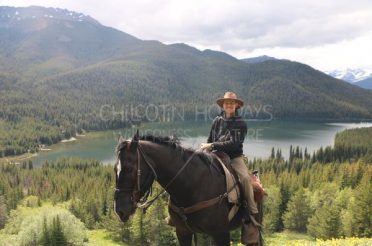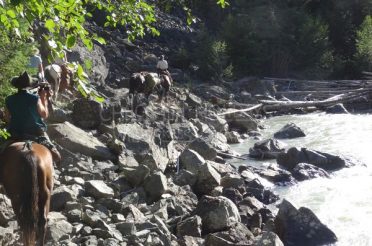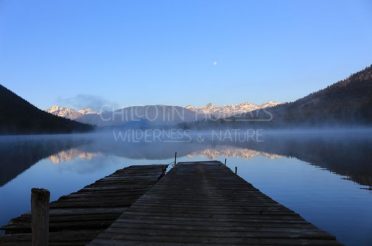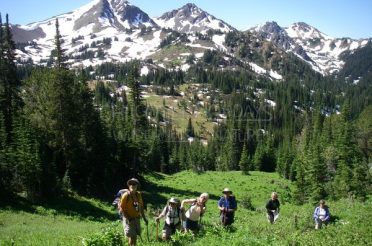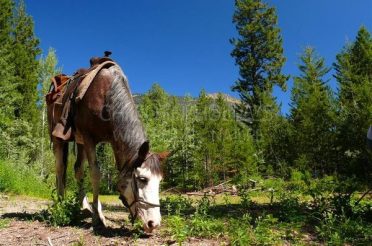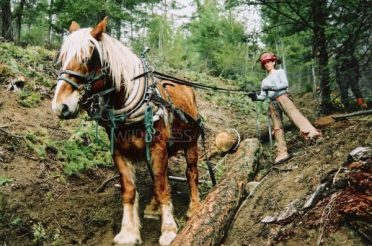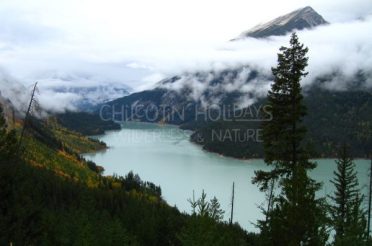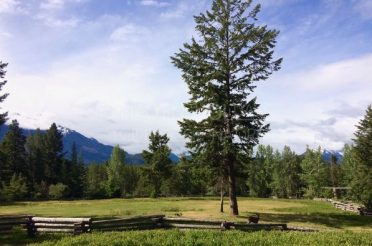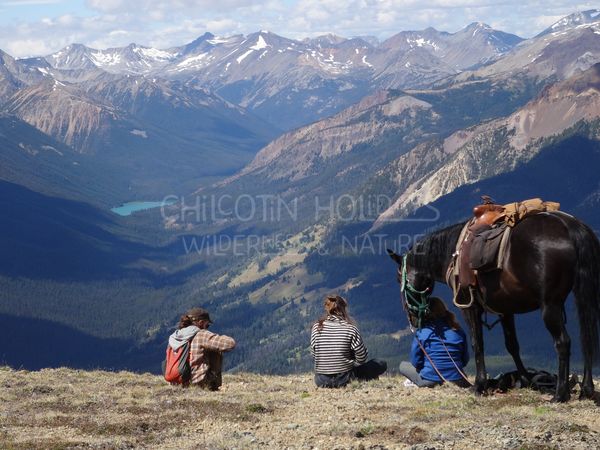 When I was eighteen years old, I decided to go to Chilcotin Holidays to do the guide school. I had just seen a movie about a group of friends going into the wilderness on horseback and I thought: “I need to do this”. I wanted to see the vast wilderness and learn all the skills related to it: knowing knots, packing horses, shoeing horses, navigating the landscape, identifying wildlife and plants, cooking on campfire, camping, and much more. In my mind, these skills would make me more independent and would help me become a person I wanted to identify myself with. However, looking back, I now know that it was never about these skills. The guide school was a platform for something bigger: becoming Remarkable.
When I was eighteen years old, I decided to go to Chilcotin Holidays to do the guide school. I had just seen a movie about a group of friends going into the wilderness on horseback and I thought: “I need to do this”. I wanted to see the vast wilderness and learn all the skills related to it: knowing knots, packing horses, shoeing horses, navigating the landscape, identifying wildlife and plants, cooking on campfire, camping, and much more. In my mind, these skills would make me more independent and would help me become a person I wanted to identify myself with. However, looking back, I now know that it was never about these skills. The guide school was a platform for something bigger: becoming Remarkable.
Being Remarkable isn’t someone who is fabulous, amazing or achieves more than you do. Although the dictionary defines remarkable as someone who is “worthy of attention; striking”, the Remarkable (with a capital R) I am referring to is much more sophisticated and complex. This idea of being Remarkable is described in Salyer and Ross’s book Remarkable! (2016) . Being Remarkable means a number of things, but it boils down to the following points:
1. Being Remarkable means having your values at the core of everything you do, also described as being Value-centric;
2. Being Remarkable means living intentionally, with clear purpose, or Living On Purpose for short;
3. Being Remarkable means knowing that every situation you are in is the reflection of yourself, thus is partially your own, also known as taking Ownership, and that unsatisfying outcomes can be changed if you change your role in the situation, or taking Responsibility;
4. Being Remarkable is strengthening and investing in other people’s development, because surrounding yourself with like-minded people creates greater outcomes, or in other words: building Relationships.
So how did I learn all these things while tying knots and shoeing horses? Being in the wilderness is challenging in many ways. This is especially true for city-people like myself. Possible dangers and threats loom within the wild, following you wherever you go. It demands more awareness of your environment than cities do and so, relying and trusting your fellow team-members to be as aware as you are is crucial. This ‘herd behavior’ is one of evolution’s fine mechanisms for survival. Many other animals, and plants alike, group together to increase their chances to survive. Living in groups enables animals and plants to spot predators, keep each other warm, navigate to important resources like water and food, reproduce, fight conspecifics for competition, and many animals even benefit from group-living for sophisticated tasks like skin and hair treatments (e.g. horses and primates ‘groom’ each other for both relaxation and skin treatment). The dangerous wilderness we explored in the guide school, made us feel dependent on each other. Let me try to specify this.
Learning how to shoe horses can be quite a complicated, and frustrating process. The awkward position can cause backpain, especially with larger horses, and the techniques are rather specific. If done wrong, horses suffer from severe pain and infections which can lead to permanent injuries and even death. Horses don’t need shoes in the wild, for their hoofs grow faster than they get worn out. However, on wilderness trips the distances are long and on rocky terrain. Here, their hoofs wear out faster than they grow. Shoes prevents them from walking ‘barefooted’. Our lives depend on their ability to take us through the mountains, and so shoeing them is important. During the guide school, I was struggling to shoe Teepee, one of our horses. All the other guide school students gathered around Teepee and investigated the problem. One by one we tried different ways, and we eventually shoed Teepee together. Not necessarily out of empathy, but because we knew that we needed each other to know how to shoe. We depended on each other to know this skill. If Teepee lost his shoe or suffered from any pain, we all would struggle to get up to camp before it gets dark. We owned the problem, and collaboratively took responsibility for it. In doing so, we bonded and build strong trust-worthy relationships. It was never really about the shoeing. It was about ownership, responsibility and relationships.
A more abstract example of how the guide school was a platform for becoming Remarkable is the mere experience of wilderness which made me reflect on my value-centricity. Seeing the vast, breath-taking, beautiful landscape made me realize that there is nothing more important than nature. Not just for resources and clean water and air, or for the mind-blowing effect it has on our emotional and spiritual well-being, but also just because of its intrinsic value, its right to exist. Standing on giant mountaintops, looking over countless more giant mountaintops and realizing that on every one of them lives a hundred-thousand animals and plants changed my perspective and baselines. It was a paradigm shift. Finding out that this value is at the center of my being gave purpose to my life.
These meaningful principles underlie every activity of the guide school, however complicated, frustrating, scary, or familiar. It is at the center of Chilcotin Holidays, and now at the center of myself. When I returned to the ranch after the exhausting guide school, I felt alive, purposeful, focused and motivated. I felt Remarkable.
Elke, Netherlands

